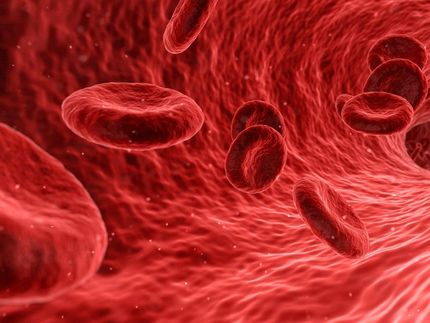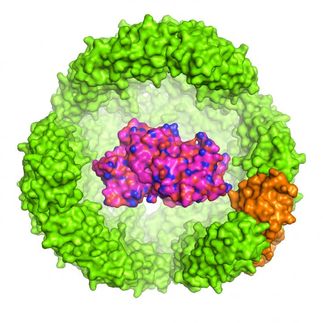'Molecular prosthetics' can replace missing proteins to treat disease
Advertisement
Researchers have demonstrated that a small molecule can transport iron in human cells and live animals when proteins that normally do the same job are missing, a condition that often causes severe anemia in patients. Such "molecular prosthetics" might treat a host of incurable diseases caused by protein deficiencies, such as anemias, cystic fibrosis or certain types of heart disease.
"If you've lost a hand, even a simple prosthetic device is really helpful. In the same way, we found that a small molecule that replicates the main job of a missing protein can be sufficient to restore functionality in cells and animals," said Dr. Martin D. Burke, the leader of the study. Burke is a professor of chemistry at Illinois and the interim associate dean for research at the Carle Illinois College of Medicine.
"If you're sick because you have too much protein function, in many cases we can do something about it. But if you're sick because you're missing a protein that does an essential function, we struggle to do anything other than treat the symptoms. It's a huge unmet medical need," said Burke, who also is a medical doctor.
Burke's team found that a small molecule called hinokitiol, derived from a species of cypress tree found in Japan, can transport iron across cell membranes that are missing transport proteins.
In a healthy system, transport proteins move iron across cell membranes to uptake iron from the gut or make hemoglobin for red blood cells. But when the transport protein is missing, iron can't cross the membrane, causing anemia. The researchers found that three hinokitiol molecules can wrap around an iron atom and transport it directly across the membrane where the missing protein should be.
The researchers tested hinokitiol in mice, rats and zebrafish that were missing iron-transport proteins. They found that orally administered hinokitiol restored iron uptake in the guts of mice and rats, and that simply adding it to the tank of anemic zebrafish prompted hemoglobin production. They also found that it restored iron transport in human cells taken from the lining of the gut.
Next, Burke's group hopes to find more small molecules that can function as molecular prosthetics for other diseases caused by protein deficiencies, with a particular focus on cystic fibrosis.
"These findings suggest that replacing missing proteins with molecular-scale prosthetics may represent a general way to think about treating a wide range of human diseases that have thus far remained out of reach with traditional medicine," Burke said.



























































